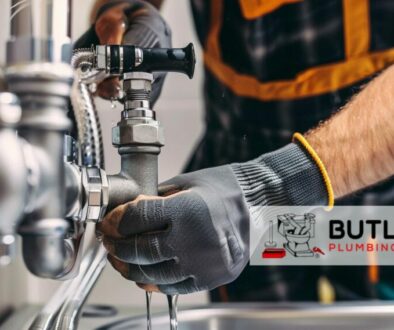Requirements and Stages for Plumbers In Oklahoma City
Passion — it’s what brings us to the work we do each day, at least for our company. It’s what keeps us going during those long hours when nothing seems to be going right. It’s what drives us to push ourselves beyond our limits and take on projects that others might not even attempt.
And it’s the passion for plumbing that will make you successful. If you’re looking for a career in Oklahoma that will give you the chance to put your skills, knowledge, and experience to use every day, becoming a plumber might be just what you need.
However, being a plumber in Oklahoma is more than knowing how to install a toilet or fix a leaky pipe. It’s also about knowing what it takes to run your own business and keep your customers happy. With this in mind, we’ve put together this comprehensive guide that will help you get started on the right foot. From learning the basics of plumbing to choosing an education program and making sure you know what it takes to be successful as an Oklahoma plumber, this guide will help you figure out what you need to know and do to become a plumber in Oklahoma.
Requirements for Obtaining a License in Oklahoma
Before you even consider becoming an Oklahoma plumber, you’ll need to make sure that you’re up to date on all of the requirements. This includes:
- To enroll, you must be at least 18 years old.
- You should have at least completed high school or graduated from an institution of secondary education.
- You should have at least three or four years of work experience as a journeyman plumber or plumbing contractor.
- A criminal background check will be required of you. This is to ensure that you do not have a criminal record and are suitable for the position.
- You will be required to provide a document showing that you are bonded and insured.
There are costs associated with taking the exams and getting your license. And, of course, you must pass the exams to receive your license.
These are just some of the things you need to consider when thinking about becoming a licensed plumber. It can be a difficult and expensive process. However, if you are willing to do the work necessary, it can also be very rewarding.
What It Takes to Become a Plumber in Oklahoma
Now with the basics out of the way, it’s time to get into what it takes to become a licensed plumber.
First and foremost, you must understand that plumbing is a professional trade. There is a lot of technical knowledge that must be learned and applied in order to become a licensed plumber. A high school diploma or GED is the minimum requirement for entering the construction industry as a whole, but higher education can make your career easier and more lucrative.
And that’s just one piece of the puzzle. In addition to taking a course in plumbing, you will also need to pass an examination administered by the Construction Industries Board (CIB), which is the regulatory agency that regulates the plumbing industry in California. In order to pass the exam, you will need to demonstrate competency in pipe fitting, soldering, and welding skills, as well as an understanding of how to read blueprints and specs.
But before you can even think about taking the exam, you will have to understand several levels of becoming a plumber in OKC.
Want To Become a Plumber in Oklahoma? Here Are the Stages To Get Licensed As a Professional Plumber in Oklahoma
After you’ve read our guide about “How to Become a Plumber in OKC”, it’s time to talk about the plumbing stages.
1) Apprentice Plumber
After you’ve completed your education and have the right certification, it’s time to get your feet wet in the real world. As an apprentice plumber, you’ll be put to work on small projects and gain valuable experience while you learn from a more experienced plumber. This stage can last anywhere from 3 months to a year, depending on how quickly you’re able to pick up on things.
In this stage, you’ll be working on small projects with a supervisor who will be responsible for training you in all aspects of plumbing work. You’ll learn about tools and equipment, how to read blueprints, how to keep records and track expenses, how to use plumbing codes, etc… It’s important that your supervisor is willing and able to teach because the faster you learn these skills, the better off you’ll be when it comes time for promotion!
2) Journeyman Plumber
When you complete your apprenticeship, you will be eligible to apply for the journeyman plumber license. You must pass an exam that tests your knowledge of building codes and other regulations, as well as plumbing codes. If you pass the exam, your employer must submit an application on your behalf to the Oklahoma Construction Industries Board. After submitting the application, it takes about 30 days for the state to process it. Once approved, you will receive a license that allows you to practice as a journeyman plumber in Oklahoma.
You’ll need to work under the supervision of a licensed master plumber for three years before applying for this license unless you have previously held a journeyman’s license or are exempt from this requirement due to military service.
But once you have your license, you are legally allowed to work on various types of plumbing projects, such as commercial plumbing projects, in Oklahoma.
3) Plumbing Contractor
Now that you have completed the training to become a plumber, you’re ready to start working as one. As a plumbing contractor, you will be responsible for hiring and supervising other plumbers, as well as providing them with tools and materials. You may also need to deal with clients directly—for example, if there is an issue with the job or if something breaks down in the middle of the workday.
Becoming a plumbing contractor requires a great deal of experience and dedication. Candidates must have at least three years of experience working as a journeyman plumber before they can even be considered for a plumbing contractor’s license. They must then pass a challenging exam from the Oklahoma Construction Industries Board that encompasses the plumbing code, materials, installation practices, and safety matters. Once they have earned a score of 75% or higher, they are eligible to apply for a plumbing contractor’s license. This rigorous training and certification process is a clear indication of why it’s essential to Hire a Commercial Plumber for Your Business in Oklahoma City. By doing so, business owners can benefit from the skills, expertise, and experience of a licensed and certified plumbing contractor, securing the efficient function of their plumbing system while avoiding potential issues that could impact their business operations.
Programs To Help You Become a Plumber in Oklahoma
Hopefully, by now, you have a good idea of the steps you need to take in order to become a plumber in Oklahoma. If you’re still feeling lost, here are some programs that can help you out:
1) Plumbers Training Institute Oklahoma
The Plumbers Training Institute Oklahoma is a six months program that provides students with the skills and knowledge needed to become licensed plumbers. The school offers plumbing and pipefitting training, as well as apprenticeship programs for those interested in entering the workforce immediately after graduation.
The school also offers several distance learning options: an online degree program, an online certificate program, and an online career training course. Students enrolled in these programs can expect hands-on training, as well as the opportunity to network with professional plumbers.
2) Plumbers and Pipefitters Training Center Oklahoma
The Plumbers and Pipefitters Training Center is a government-run vocational school in Oklahoma City, Oklahoma. It was founded in 1953, and it offers training programs for plumbers and pipefitters. The school uses a traditional system of professional education—meaning that students are trained by an instructor or mentor—and it is governed by well-defined laws to protect apprentices from exploitation. In order to earn a license in the plumbing and pipefitting industry, students must complete at least 900 hours of hands-on experience and then pass the state licensing exam.
Concluding Remarks
If you’re looking for a career that requires hard work and dedication, plumbing may be the right choice. The field is constantly growing, and the demand for skilled professionals is always high. With proper training and experience, you can have a rewarding career as a plumber. The field offers plenty of opportunities for advancement, and you’ll be able to earn a living doing something that you truly enjoy.





